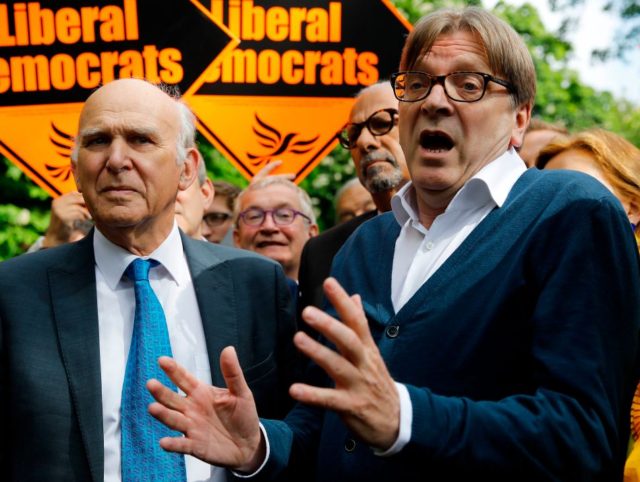BUDAPEST, Hungary — Conservative Hungarian MEP Balázs Hidvéghi told Breitbart London he believed the Brexit vote was a wake-up call for Brussels, saying that he hoped the result would spark the change for reforming the political bloc.
The Newly elected MEP and former communications director for Prime Minister Viktor Orban’s Fidesz party said of the fallout from Britain’s decision to withdraw from the European Union: “I think Brexit is a very important event and it has a lot of relevance [to the EU’s attitude towards member states in future]. Brexit, I think and we believe, to a large extent was a result, a consequence of failed and wrong policies in Brussels, bureaucracy, over-centralization.”
“Many Brits have told me if they had to summarise why they supported Brexit it was three words — Jean-Claude Juncker — and people like him. It’s this kind of attitude and approach that the Brits had enough of,” he added.
European Commission President Juncker has been a staunch opponent of both Brexit and the populist-sovereigntist movement across Europe.
Last month, Mr Juncker suggested that the European Union should have “interfered” in the Brexit referendum saying, “It was a mistake [for Brussels] not to intervene and not to interfere, because we would have been the only ones to destroy the lies that were circulated round.”
For Mr Hidvéghi, however, the Brexit vote was a “wake up call” for the bureaucrats in Brussels. “We have just lost one of our biggest member states, the United Kingdom. It’s a great loss for the project of Europe. It’s a great loss in every sense and so we are very sorry to see them leave but it should be a wake-up call for Brussels to change course,” he said.
Far from being an opportunity for the European Union to change course and embrace a new way of business, however, top Brussels figures openly admit the negotiating strategy is one intended to punish Britain for leaving the bloc, as a means to discourage others from considering going their own way.
The course endorsed by both Hidvéghi and Fidesz is a reform of the European Union into a Europe of nations rather than a centralised superstate.
“We believe the idea of a Europe of nations should be strengthened. This is the vision of Charles De Gaulle, the French president in the 1950s when he was talking about L’Europe des Nations, a Europe of nations, that’s what we believe in. We believe in sovereign, independent free nations in Europe cooperating on their free will and making the European Union work like that,” he said.

COMMENTS
Please let us know if you're having issues with commenting.